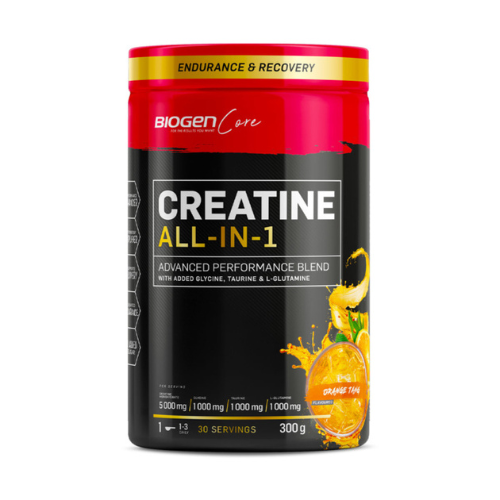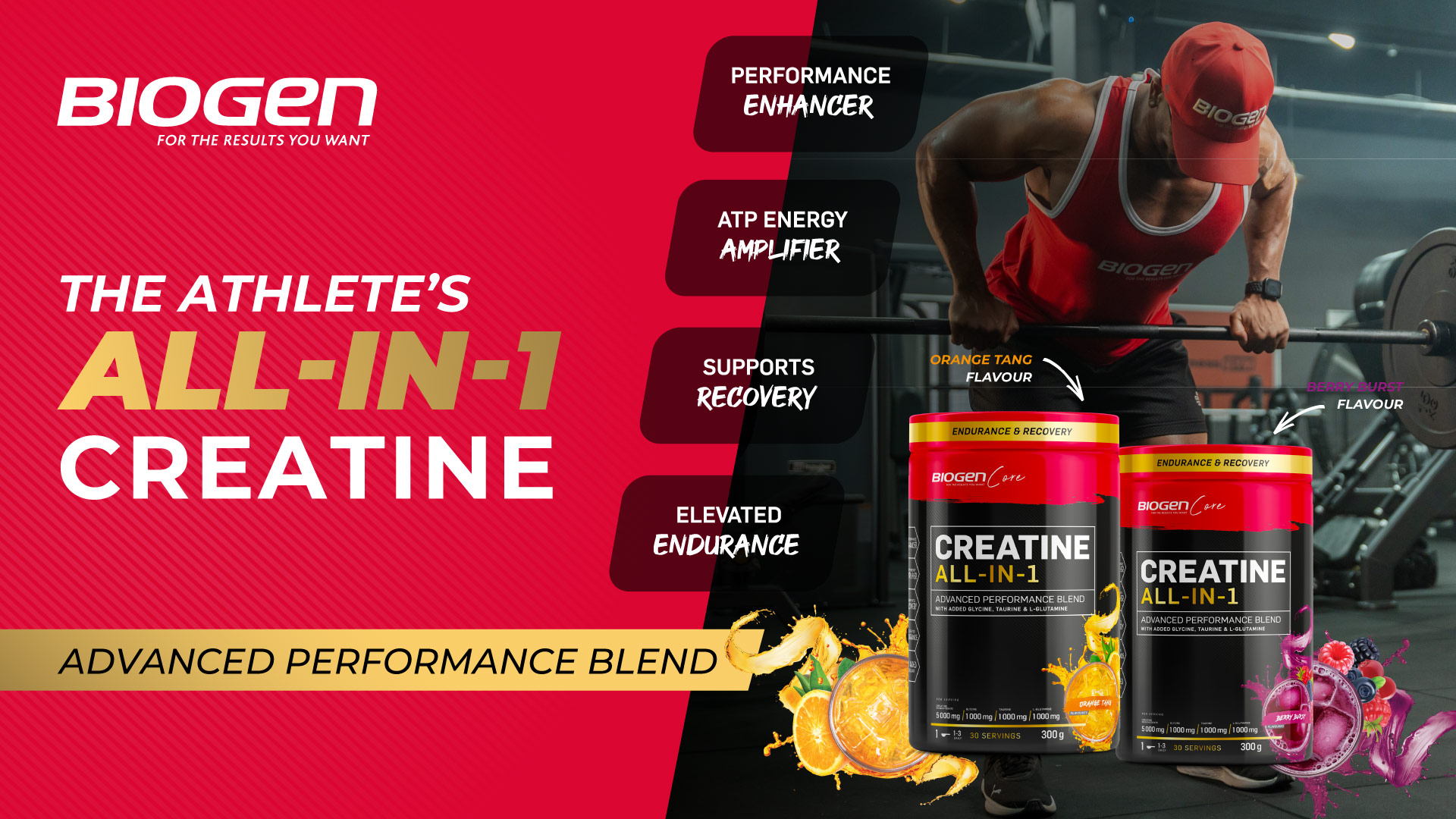Across Nigeria, Ghana, and much of West Africa, fitness culture has taken on new life in recent years as young people focus more on strength training, muscle building, and athletic performance. Amid ongoing debates about the best ways to reach new fitness goals, one supplement continues to stand out worldwide: creatine. Known for its robust scientific backing and effectiveness, creatine has become a staple in many gym bags, from the weightrooms of Surulere to Accra’s new training centres and even among local amateur sports teams.
At the heart of creatine’s popularity is its ability to help users get more from every workout. According to clinical studies published in the Journal of the International Society of Sports Nutrition, supplementing with creatine increases the amount stored in your muscles. This additional reserve means you can exert greater power, push through more repetitions, and complete extra sets—factors that are reported to accelerate muscle growth, enhance strength, and improve overall athletic performance in the long run.
But creatine’s benefits are not just about gaining muscle. Recent research has pointed to its impressive role in aiding muscle recovery after strenuous exercise. A key study comparing recovery aids found that creatine supplementation reduced signs of muscle damage more effectively than traditional whey protein. In the study, participants who took creatine reportedly experienced less post-workout soreness and demonstrated superior muscle repair compared to those who used whey or no supplements at all (Rawson & Volek, 2003).
Why might this be? Nutrition experts, such as Lagos-based sports scientist Dr. Ifeanyi Okafor, suggest that creatine’s unique action on muscle cell hydration is a big part of the secret. “One of creatine’s main mechanisms is drawing more water into muscle cells early in the process,” he explains. “This creates an environment for faster, more efficient repair later in recovery. That’s why you see athletes—including those in Nigeria and Ghana—using it before and after sessions.”

Biogen Creatine All-in-1 presents itself as a simple, all-in-one solution for both experienced athletes and newcomers to strength training. Its formula combines pure creatine monohydrate with select supporting ingredients designed to target three key elements: building muscle strength, accelerating recovery, and ensuring adequate hydration. With a single scoop per day, users can avoid the hassle and extra cost of mixing and matching different supplements—an important consideration in West Africa, where cost and product availability often matter.
As the supplement industry evolves across Africa, innovations like these are gradually shaping the landscape. According to sports nutrition advocate Esi Mensah from Accra, “Many people here don’t have access to a wide range of products, so having a blend that covers multiple areas—endurance, muscle gain, hydration—makes a real difference,” she says. “It’s a time-saver, it helps manage costs, and it simplifies daily routines, especially for busy professionals or university students balancing athletics and academics.”
Each serving includes:
- Ingredients that support greater strength and explosive power during exercise
- Formulations that may enhance endurance levels and help postpone fatigue
- Hydrating compounds that aid muscle function and fluid balance, especially important in hot West African climates
- Recovery-boosting agents to help muscles rebuild faster after intense sessions
- Nutrients which could contribute to energy metabolism and overall physical efficiency
This blend offers an all-in-one solution, eliminating the need for supplemental stacking—a practice that can be difficult to maintain, especially given the inconsistent availability of international brands in many local shops and online stores. With a single daily scoop, athletes and fitness enthusiasts can simplify their routines and still benefit from a carefully balanced mix of key muscle-building and recovery-supporting nutrients.
Experts point out, however, that while creatine is widely studied and generally considered safe for healthy adults, it’s crucial to buy from reputable brands and consult a medical professional or nutritionist before starting any new supplement. Dr. Okafor emphasizes, “Look out for third-party tested products and be wary of counterfeit supplements that are unfortunately sometimes present in local markets.”
Access and Cost: Challenges in West African Markets
Although urban centres like Lagos, Abuja, Accra, and Port Harcourt have seen a rise in specialty fitness stores, many Nigerians and West Africans still struggle with high prices, counterfeit risks, and limited supply of genuine sports nutrition products. Local voices, such as Abuja-based trainer Mercy Adigun, advise buyers to rely on licensed outlets and stay informed on current market trends. “Many of my clients ask if supplements are worth the price,” she notes. “I always say, focus on your diet first, use supplements as a complement, and never buy from unknown sellers. Safety first!”
Creatine Myths and Facts: The Local Conversation
Creatine’s reputation is still sometimes clouded by myths and misconceptions in West African communities. Rumours persist about side effects, with some people alleging kidney damage or rapid weight gain. However, peer-reviewed research, including a 2021 review in the journal Nutrients, confirms that in healthy individuals taking normal doses, creatine is safe and side effects are uncommon. Nevertheless, those with known kidney issues or pre-existing health conditions should always seek doctor’s advice before using supplements.
Balancing Tradition with Modern Approaches
Fitness in West Africa has long been influenced by traditional beliefs, herbal remedies, and diet. As international trends intersect with local cultures, some gyms today offer a blend of both, sometimes pairing age-old plant tonics with modern supplements like creatine. Nutritionist Olatunde Bamidele notes, “There’s a healthy curiosity among young Africans. They’re looking to get stronger, perform better, but they also want to remain grounded in local practices. It’s important to balance new science with what has worked for us traditionally.”
Global Impact and What It Means for African Athletes
The impact of creatine supplementation isn’t limited to the gym. In professional circles, African athletes competing internationally often rely on supplements like creatine to enhance performance and speed up post-match recovery. This mirrors trends seen in U.S., European, and Asian professional sports sectors. Guidance from global sports organisations, such as the World Anti-Doping Agency, confirms creatine is legal and allowed for use in most sports, making it a safe option for aspiring athletes seeking to reach global standards.
Conclusion: Making Informed Choices for Your Fitness Journey
As fitness continues to grow in popularity across Nigeria and West Africa, understanding proven supplements like creatine—and how they fit with your individual goals, local diet, and wellness routine—is more important than ever. While all-in-one products like Biogen Creatine All-in-1 make supplementation easier, the best results come from blending these new solutions with good training, a balanced diet, and support from local experts or certified coaches.
**MH Partnership
What’s your experience with sports supplements—have you tried creatine or would you recommend it? Share your journey, opinions, or tips on safe supplement use in Nigeria, Ghana, or anywhere in West Africa in the comments!
Have a story you want to share or sell about sports, health, or local talent breaking barriers? We’d love to hear from you! Please email story@nowahalazone.com to get your story featured or discuss story sales.
For general support, reach out at support@nowahalazone.com. Follow us on Facebook, X (Twitter), and Instagram for more updates, interviews, and inspiring local stories!










